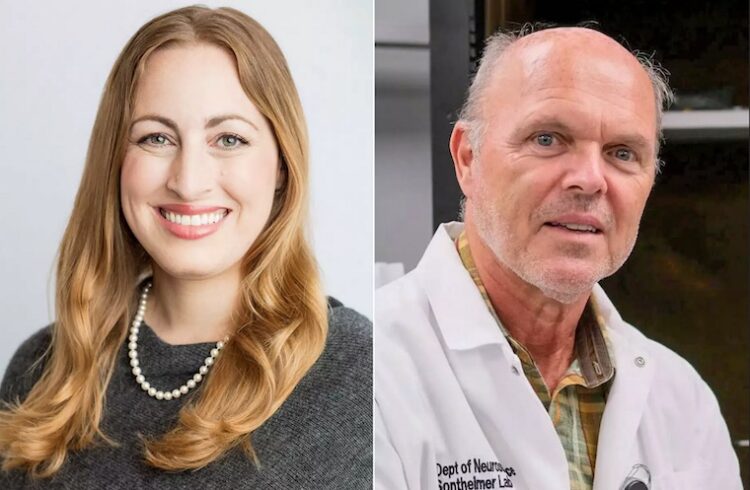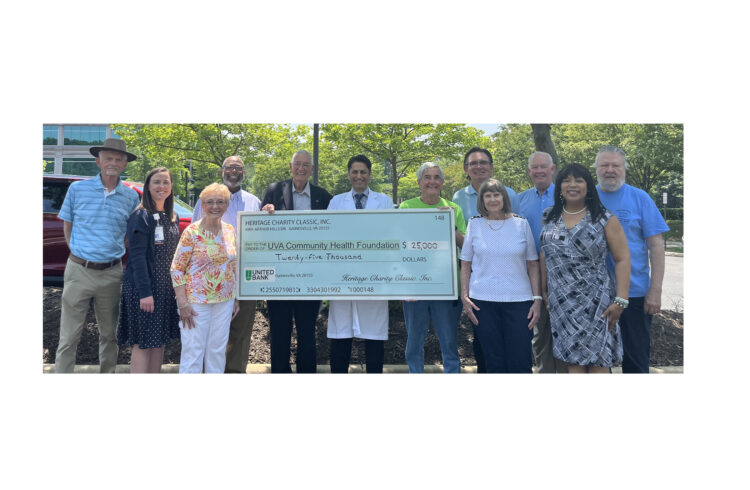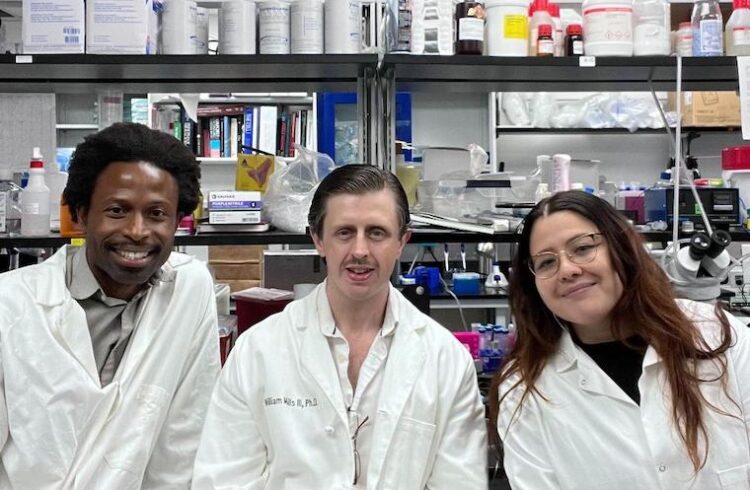
Crohn's disease is an inflammatory bowel disorder that can occur at any age but is especially likely to strike teens and young adults.
Researchers at UVA Children’s will receive $3.6 million from the National Institutes of Health to better understand and treat Crohn’s disease, an inflammatory bowel disorder that can have lifelong, life-changing consequences for young patients.
Crohn’s disease can strike at any age, but the onset of Crohn’s is particularly common in teens and young adults. It often causes ulcers and scarring in the small intestine that rob the bowel of its ability to absorb nutrients from food. Living with Crohn’s presents many everyday mental and physical challenges, including navigating social situations, worrying about travel and dealing with regular courses of therapy. Crohn’s is a progressive disease, and children who are diagnosed at an early age often develop severe symptoms within only a few years of diagnosis. This can stunt their growth, weaken their bones and delay puberty. Left untreated, the disease can even prove fatal.
“Why some patients respond to therapy and others do not, or why some patients develop severe complications while others have only mild symptoms, is a mystery that we are trying to solve,” said Sana Syed, MD, a pediatric gastroenterologist at UVA Children’s who is spearheading the project. “By understanding why Crohn’s differs from patient to patient, we can identify new pathways to combat this disease and provide more personalized care to improve the lives of all our patients.”
Understanding Crohn’s Disease
Dr. Syed and her collaborators at UVA, Emory University and the Georgia Institute of Technology (Georgia Tech) are planning an ambitious effort to better characterize Crohn’s at the most fundamental levels. They plan to build a sophisticated computer model to interpret the internal workings of cells in the ileum, a section of the small intestine often stricken by Crohn’s. This will let them identify and better understand the metabolic changes that take place inside these cells, such as changes in how the cells use fats or sulfur, that are thought to contribute to Crohn’s. The researchers hope this will let them identify biological markers or metabolic signatures that can be used to improve the early diagnosis of Crohn’s and provide personalized medicine – treatments tailored precisely to the needs of each patient.
Once they have developed their computer model, the researchers will recruit volunteers with Crohn’s from UVA Health and Emory in Atlanta to provide tissue samples. The researchers will use these samples, along with other means, to validate the results of their computer modeling and confirm the metabolic signature of Crohn’s disease. The team also will evaluate whether “organoids” – miniature guts in a lab dish developed from patient tissue samples – can be used effectively to study Crohn’s.
The researchers hope that their work will provide a valuable framework for other scientists studying Crohn’s and similar gastrointestinal diseases, advancing our understanding of Crohn’s, accelerating research and speeding up the development of new treatments. They also hope that the project will ultimately help identify Crohn’s “subtypes” among children, so that doctors can provide the best care possible to these young patients.
“Being diagnosed with Crohn’s disease at such an early age is a scary thing for many young adults who are looking forward to going to college, finding their first job or starting a family,” said Syed, of UVA’s Child Health Research Center and the School of Medicine’s Department of Pediatrics. “It is our responsibility as physicians and scientists to find new ways to help our patients effectively manage their disease. This project will significantly improve patient care by informing earlier, more personalized treatments to help everyone with Crohn’s disease live happy, healthy lives.”
Syed’s collaborators on the project include Jason Papin, PhD, of UVA’s Department of Biomedical Engineering (a joint program of the School of Medicine and School of Engineering); Subra Kugathansan, MD, and Jason Matthews, PhD, at Emory; and Georgia Tech’s Facundo Fernandez, PhD, and David Gaul, PhD.
The $3.6 million NIH grant, R01DK132369-0, is provided by the National Institute of Diabetes and Digestive and Kidney Diseases. More information can be found on NIH RePORTER.
To keep up with the latest medical research news from UVA, subscribe to the Making of Medicine blog.



